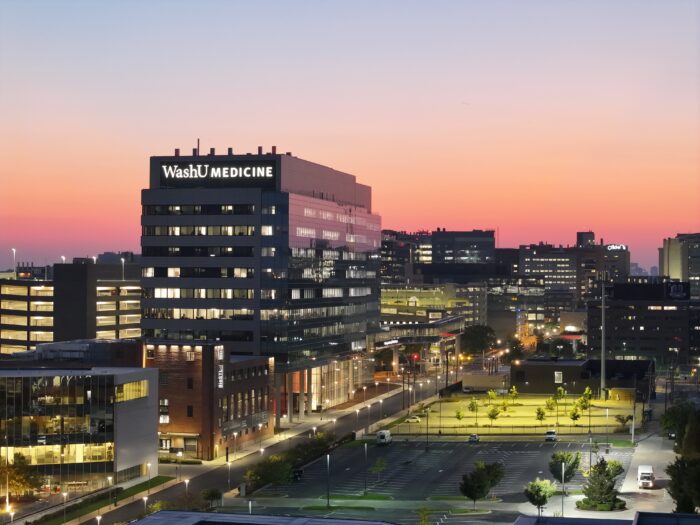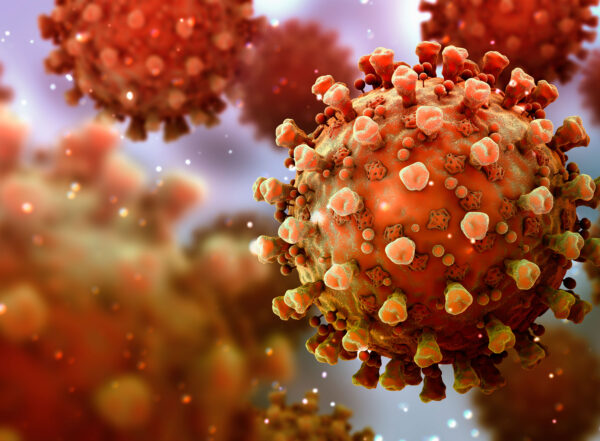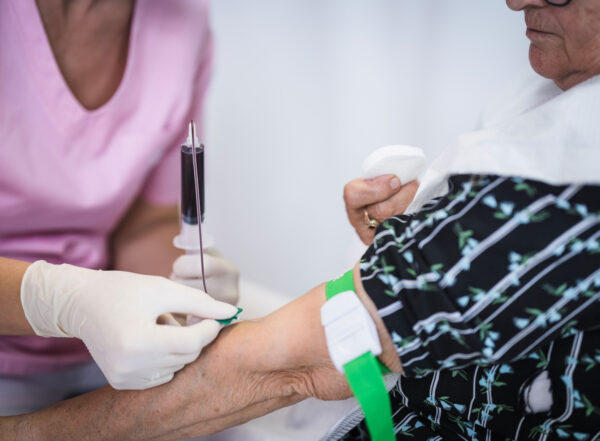Fort Neuroscience Research Building earns LEED Gold
Design considered environment, energy use from interior lighting to exterior landscape
 HUY MACH/WASHINGTON UNIVERSITY SCHOOL OF MEDICINE
HUY MACH/WASHINGTON UNIVERSITY SCHOOL OF MEDICINEThe Jeffrey T. Fort Neuroscience Research Building on the Washington University School of Medicine campus in St. Louis is certified LEED Gold.
The Jeffrey T. Fort Neuroscience Research Building at Washington University School of Medicine in St. Louis has earned LEED Gold certification from the U.S. Green Building Council. To earn this rating, buildings must meet stringent standards in energy use, material recycling, water consumption, and other measures indicating low environmental impact.
“This achievement not only underscores our commitment to responsible environmental practices but also signifies our dedication to promoting community health through innovation and collaboration,” said Melissa Rockwell-Hopkins, the School of Medicine’s associate vice chancellor for operations & facilities management.
The building, which officially opened in January, has high-efficiency chillers and cooling towers, and heat- and energy-recovery technology. Everything from the lab equipment to the elevators was designed with an eye toward conservation and efficient energy use. For example, the parking garage has charging stations for electric vehicles; native plants were used for landscaping, which helps with water efficiency; and the building was designed to minimize urban heat island effect during the day and light pollution at night.
“We are excited to celebrate this accomplishment, but the certification is only a small component of our sustainability goal,” Rockwell-Hopkins said. “Sustainability at WashU Medicine transcends certification for it embodies our commitment to improving lives within our buildings, on our campus, in St. Louis and surrounding communities, and across the world.
“We are continuously striving to create a supportive environment where every individual can thrive comfortably and safely. Our project team is grateful for collaborative campus leadership, including Exterior Committee Board Members, Chancellor Martin and Dean Perlmutter, and for the tireless dedication of the Neuroscience Research Building Project Core Advisory and research lab representatives who made this project and certification possible.”






